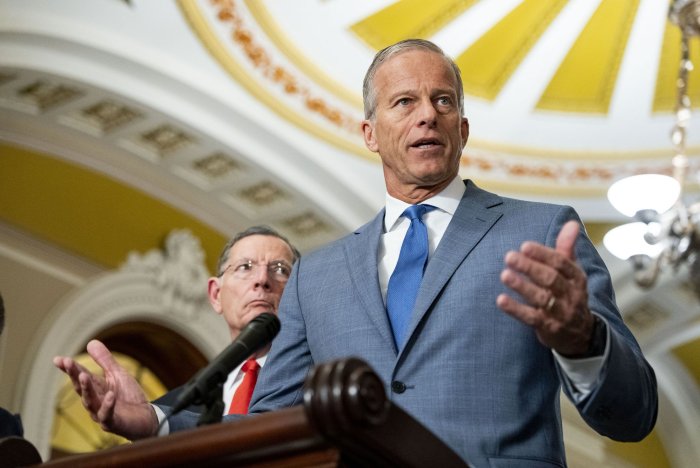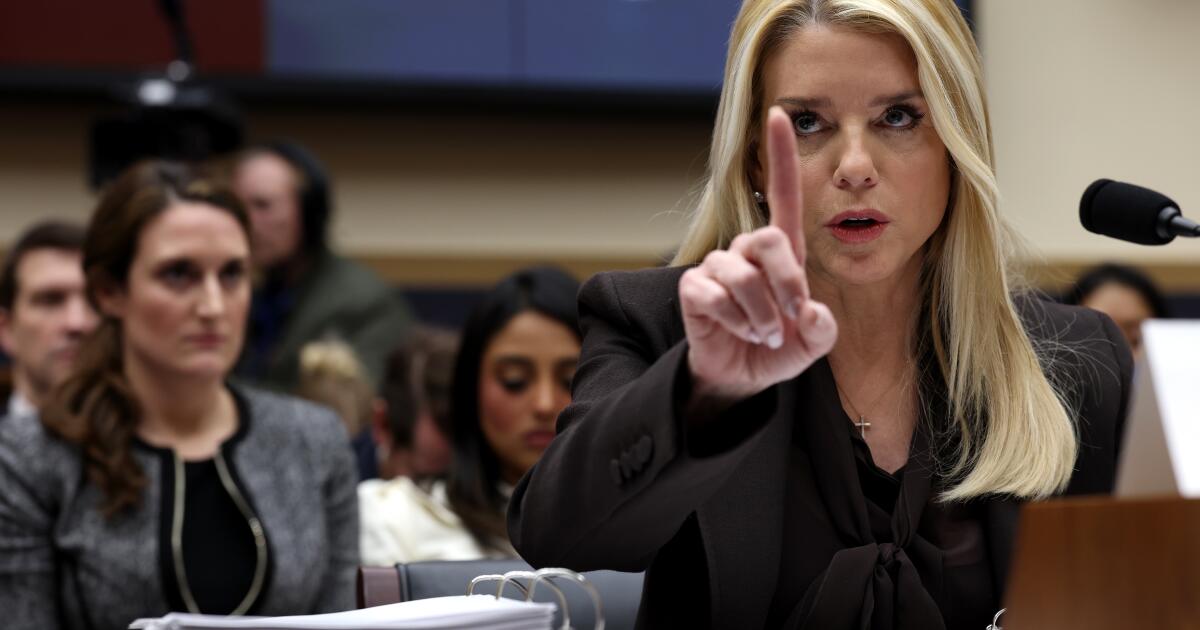U.S. attorneys to defend their prosecution of Kilmar Abrego Garcia
1 of 5 | Kilmar Abrego Garcia delivers remarks during a rally before his check in at the ICE Baltimore Field Office in Baltimore Md., in August. Federal prosecutors must defend their prosecution Thursday in the case against him for human smuggling in Tennesssee. File Photo by Shawn Thew/EPA
Feb. 26 (UPI) — In a court hearing Thursday, the Justice Department must convince a judge that it didn’t prosecute Kilmar Abrego Garcia as retaliation for fighting his deportation.
Assistant U.S. Attorney Robert McGuire, based in Nashville, secured an indictment in 2025 against Abrego Garcia, who is undocumented and married to an American citizen, for human trafficking from a 2022 traffic stop in Tennessee. Abrego Garcia had nine passengers in the vehicle, and he was not arrested or given a ticket for the stop.
The government alleges he was the driver in a human smuggling conspiracy, but only after he was mistakenly deported to El Salvador in April 2025. The government returned him in May after court rulings demanded it and McGuire got the indictment.
Abrego Garcia’s lawyers have argued that the prosecution is in retaliation for challenging his deportation. While vindictive prosecution is difficult to prove, U.S. District Judge Waverly D. Crenshaw has signaled that he may agree with Abrego Garcia’s lawyers.
Crenshaw pointed to comments made by Deputy Attorney General Todd Blanche in a Fox News interview the day Abrego Garcia was brought back to the United States.
Blanche said that the Justice Department began its investigation into the traffic stop after the federal court in Maryland determined that it had no right to deport Abrego Garcia, The Washington Post said.
“What should we do as the Department of Justice when a judge is accusing us of doing something wrong?” Blanche said. “We have an obligation … to investigate it, and that’s exactly what we did.”
McGuire has said in court that he alone made the decision to prosecute Abrego Garcia, but messages between him and the DOJ have contradicted that claim, The Post reported.
Associate Deputy Attorney General Aakash Singh told McGuire in an April 27 message in the court filings that prosecuting Abrego Garcia should be considered a “top priority.”
“The only ‘independent’ decision Mr. McGuire made,” Abrego Garcia attorney Sean Hecker said in a Dec. 19 court filing, “was whether to acquiesce in [the Office of the Deputy Attorney General’s] directive to charge this case, or risk forfeiting his job as Acting U.S. Attorney — and perhaps his employment with the Department of Justice — for refusing to do the political bidding of an Executive Branch that is avowedly using prosecutorial power for ‘score settling.'”
McGuire has also argued that the reason he didn’t prosecute Abrego Garcia earlier is that he didn’t know about the traffic stop. But the judge disputed that claim.
“Cases do not magically appear on the desks of prosecutors,” Crenshaw wrote in October. “The motivations of the people who place the file on the prosecutor’s desk are highly relevant.”
On Thursday, McGuire and two agents from the Department of Homeland Security are expected to testify. Abrego Garcia’s attorneys have tried to subpoena Blanche and Singh, but Crenshaw has said their testimony isn’t necessary.


